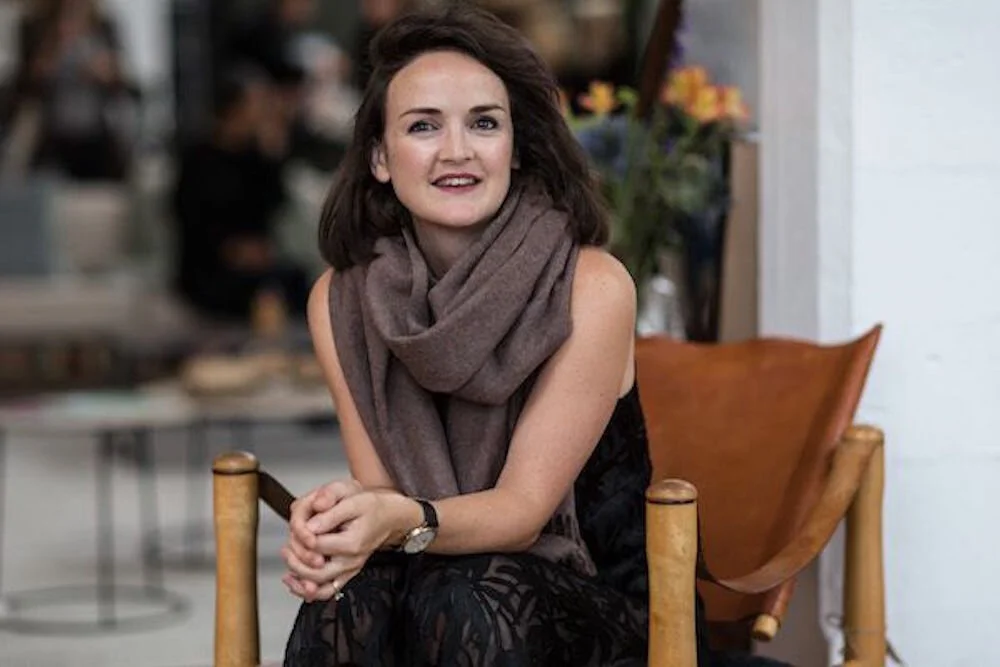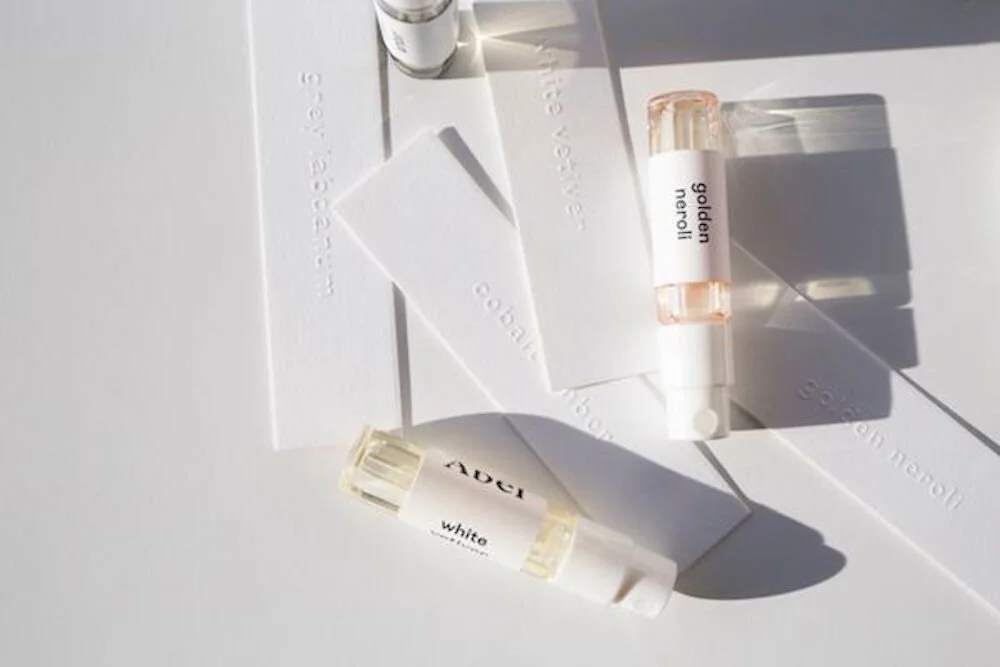At the moment, most of us find ourselves observing “Social Distancing”. But even at a yard from each other, don’t we wish to be remembered for how delicious we smelled, not how poorly?
So I’m revisiting this interview from 2017 with Frances Shoemack of Abel, a beautiful brand with a selection of delicious scents, you can find online here.
How do you choose a perfume? I mean, nothing is as personal, comes as close to your skin and provides an immediate introduction to your character as your scent does. While some people may prefer a soapy, clean smell, others opt for a light scented lotion, I need that spritz of something stronger in the morning to get me going. And again in the late afternoon to pick me up.
When I was introduced to Amsterdam-based brand Abel at this year’s Pitti Fragranze, a fragrance fair held in Florence every September, I fell in love. Not just with their clean, natural and yet evocative scents but also with their mission and, last but not least, their creator.
New Zealander Frances Shoemack has been on a mission, to create the world’s best natural perfume. Abel is not about a hundred different scents, actually at the moment they are only five, and they combine a heart note which provides the name of each perfume, but also utilize color as a guide to the wearer. When my sampler arrived — Shoemack has this wonderful concept of allowing the consumers to find their favorite scent through trial sized vials — I dug in with gusto.
Grey Labdanum by Abel
I started out with a flower scent, the Golden Neroli just because I love the smell of orange blossoms. A fresh daytime fragrance rounded out with matcha tea and jasmine notes, I fell in love at first scent. Thinking to stay in the flowery tones, I then moved on to Grey Labdanum, which turned out to be a much more sultry scent, with bitter orange and violet top notes, followed by incense and patchouli. All in that combination felt completely unexpected. I already knew by then that I had two favorites, out of the two I’d tried, so I hoped that the rest of the fragrances would not be as great.
Of course, they were just as wonderful. From White Vetiver, which offers the freshness you’d expect from its name but also hints of lime and mint with a caramel finish, to Red Santal, a spicy fragrance combining clove, pepper and bergamot, to Cobalt Amber, the most “oriental” of the fragrances — everything Shoemack, a former winemaker, and her lead perfumer Isaac Sinclair create is sheer natural heaven.
When I had finally sprayed the very last drop of each vial, I settled on Golden Neroli and Grey Labdanum, which will make for a seamless transition from day to evening, but also take me all through 24 hours singlehandedly, on a hot summer night and a crisp winter morning respectively.
Following is a short chat with Frances Shoemack about choosing favorite scents, the meaning of natural perfume and the importance of Amsterdam for Abel. And don’t forget to check out each scent’s page on their website for a truly magical, multi-sensory experience!
The Abel sampler, a great way to find your favorite scent
What was the inspiration for each of your individual fragrances? How did you come up, with the help of your perfumer, with the ingredients that would achieve the perfect scent?
Frances Shoemack: Isaac (our master perfumer) and I have a very open creative process, we work really closely together, with very few rules or parameters. The key things are falling in love with the notion, the ingredients and finding ways to make them sing. I tend to be heavily involved in the conceptual phase, but fleshing out the fragrance and the technical phase of getting it balanced and harmonious (which takes many months, even years) are very much Isaacs domain. He’s an absolute perfectionist and is continually surprising me throughout the process with new ideas, notes or accords I’d never have thought about.
Why is making organic scents so important? What is the difference in the ingredients, to an untrained nose?
Shoemack: They are actually all natural, we stopped working with only organically certified ingredients when we realized it was holding us back from making the best natural perfume possible, and also stopping us from using certain sustainable sources (that aren’t available with organic certification), such as wild harvested cedarwood.
All natural was something that was important to me personally. I grew up on a farm, with a yoga teaching mother and nature and natural products just feel right to me. However I couldn’t find a natural perfume I loved that was also chic, modern and sophisticated. It was here that Abel was born.
To someone not used to smelling naturals, they will smell different to “normal” perfume, this can take some time to get used to. But I would say that once you’ve discovered naturals, it is almost impossible to go back. It’s like drinking that fake orange juice all your life, then discovering freshly squeezed orange juice. You could never go back to the fake stuff, you’ve realized it doesn’t even taste like orange juice!
What was the initial spark in creating Abel?
Shoemack: It was more of a slow burn. I have always loved the world of scent. This preoccupation for the olfactory manifested itself in me studying winemaking and a career in the New Zealand wine industry. It was after moving to Amsterdam and properly discovering the world of artistic perfumery that burn ignited. I fell in love with this world, but there was something that wasn’t sitting right with me — I wanted this world, but I wanted it in a natural way. When I said to Dave [Shoemack’s husband] “I want to quit my job and start a perfume business” he thought I had lost the plot, just a little, but to his credit, never tried to stop me!
How important is Amsterdam itself to the brand? Could Abel exist anywhere else? And then your own NZ roots, how do they fit into the equation?
Shoemack: Amsterdam has certainly shaped the way Abel has grown to date. When I first started the business I wanted something that could always move with me (at the time I’d only lived in Amsterdam a short time and didn’t expect I’d stay so long). But the truth is wherever Abel is based in the future, both Amsterdam and New Zealand are a part of Abel’s DNA.


